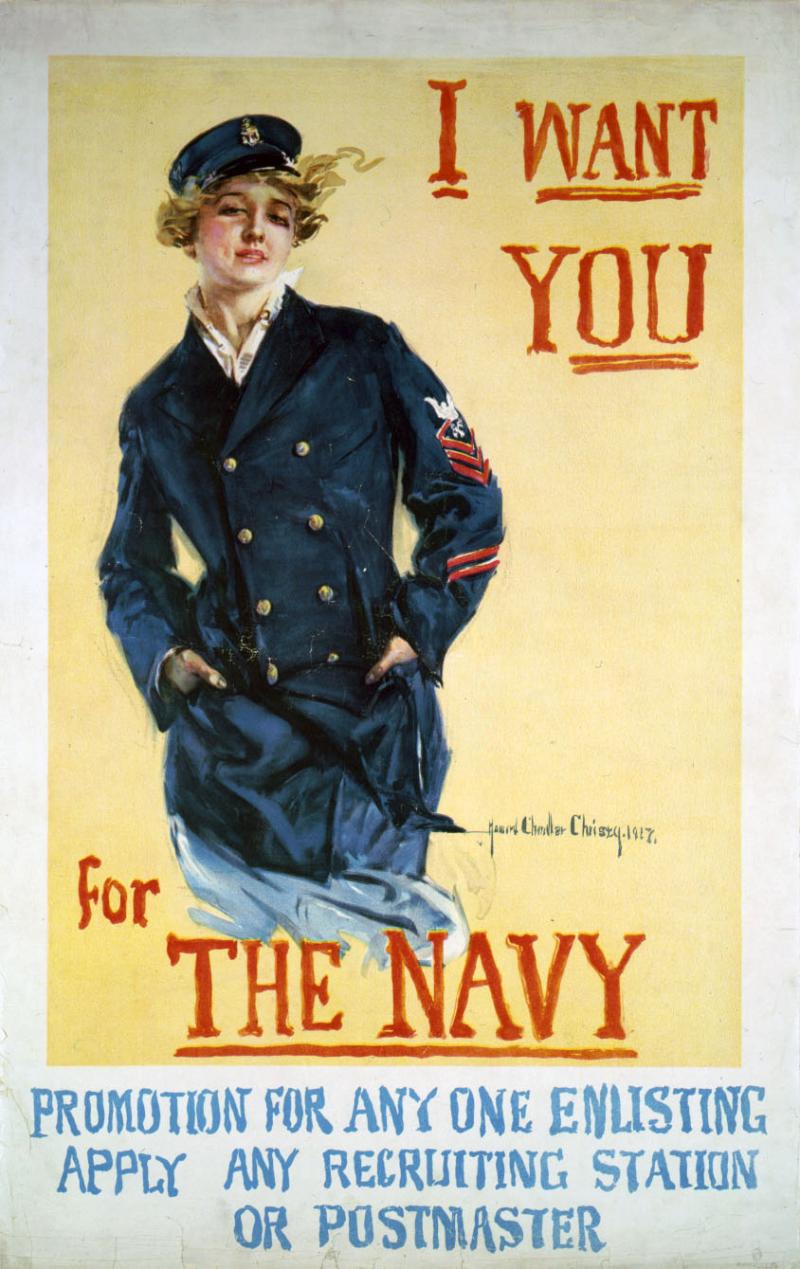I Want You for the Navy
As in many wars, the American public needed convincing to join the military. One way to do that was to display the uniform on attractive men and women. What sort of message do you think the woman's body language and style of dress show? Why do you think a woman was chosen, when the naval combatants were most often men?
To find out more about women and propaganda go to the links below:
British Library- https://www.bl.uk/world-war-one/articles/women-in-world-war-one-propaganda
Smithsonian National Museum of American History - http://americanhistory.si.edu/collections/object-groups/women-in-wwi/war...
It is also important to note that while American men (usually as soldiers) and women (usually as nurses) were joining the war, suffragists were doubling up on their efforts to achieve women's rights to vote.
Links on Women Suffrage and World War I:
National Parks Services- https://www.nps.gov/articles/womens-suffrage-wwi.htm
PBS: American Experience- https://www.pbs.org/wgbh/americanexperience/features/the-great-war-woman...

Christy, Howard Chandler. I want you for the Navy promotion for anyone enlisting, apply any recruiting station or postmaster. Print in color. 1917. Library of Congress: Prints and Photographs Division. http://www.loc.gov/pictures/collection/wwipos/item/92510150/ (Accessed October 25, 2018)
Public Domain
Public Domain is a copyright term that is often used when talking about copyright for creative works. Under U.S. copyright law, individual items that are in the public domain are items that are no longer protected by copyright law. This means that you do not need to request permission to re-use, re-publish or even change a copy of the item. Items enter the public domain under U.S. copyright law for a number of reasons: the original copyright may have expired; the item was created by the U.S. Federal Government or other governmental entity that views the things it creates as in the public domain; the work was never protected by copyright for some other reason related to how it was produced (for example, it was a speech that wasn't written down or recorded); or the work doesn't have enough originality to make it eligible for copyright protection.
Add a comment
PLEASE NOTE: NCpedia provides the comments feature as a way for viewers to engage with the resources. Comments are not published until reviewed by NCpedia editors at the State Library of NC, and the editors reserve the right to not publish any comment submitted that is considered inappropriate for this resource. NCpedia will not publish personal contact information in comments, questions, or responses. If you would like a reply by email, note that some email servers, such as public school accounts, are blocked from accepting messages from outside email servers or domains. If you prefer not to leave an email address, check back at your NCpedia comment for a reply. Please allow one business day for replies from NCpedia. Complete guidelines are available at https://ncpedia.org/about.